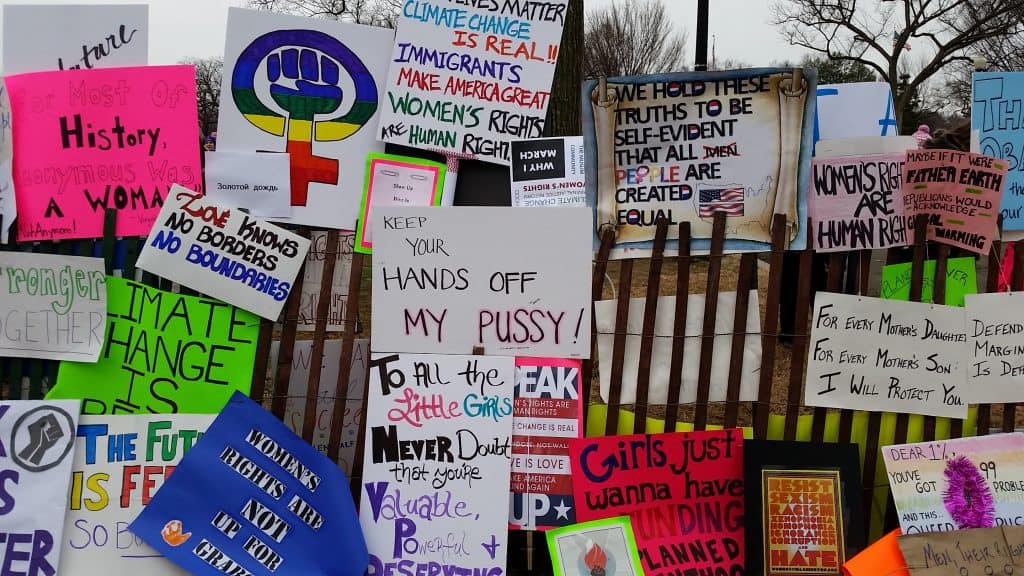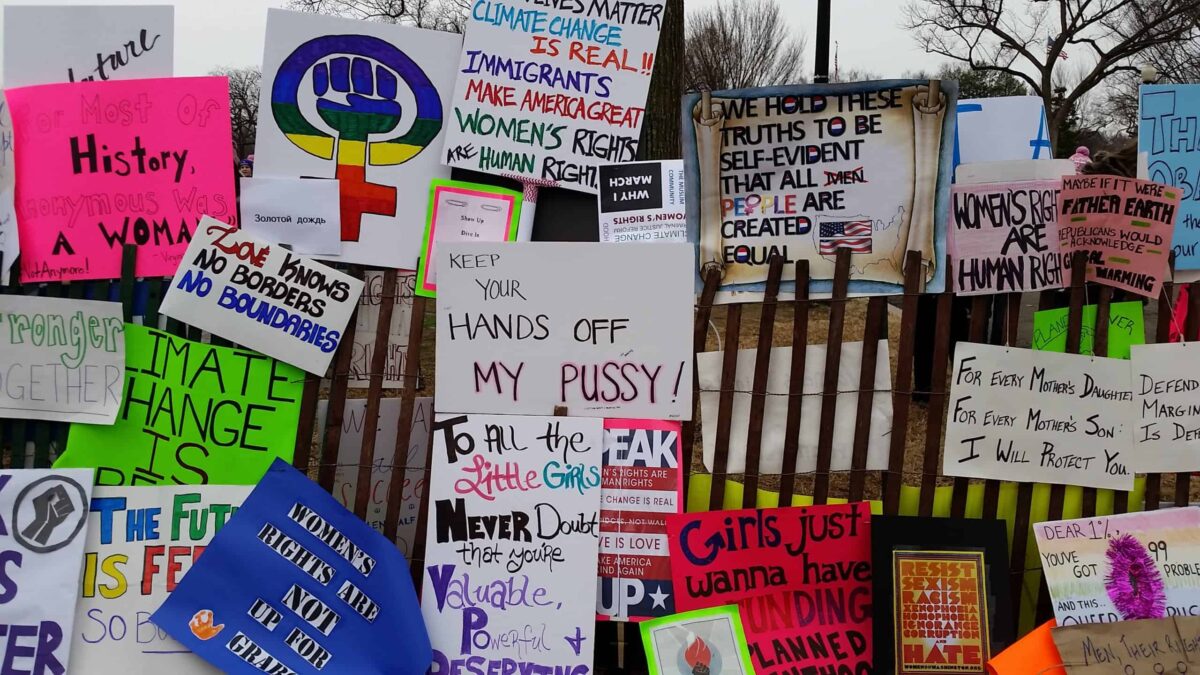By Rebecca Briesmoore

Women, according to the majority of the United State Supreme Court, cannot be trusted. More specifically, they cannot be trusted to make a monumental decision about their body or their life.
According to the Supreme Court’s leaked draft opinion for the Dobbs v. Jackson Women’s Health Organization case, which is expected to overturn the decades-long precedent of Roe v. Wade, that decision can only be entrusted to state governments.
This expected ruling by the Supreme Court will transport us to a dark era in history, when women were not only forced to accept a risky back-alley abortion or have a child they did not desire but were not trusted to make even small decisions concerning their own life.
Almost fifty years ago, when Roe v. Wade was decided, women were not allowed to run in marathons, accuse their husband of rape, or even have a credit card without a man’s permission.
Thanks to the grueling work of women shattering glass ceilings, women have many more rights today than in 1973. But losing the right to choose an abortion means losing a critical component of equality, and in 2022, women could face harsher consequences if Roe is overturned.
Since the Supreme Court legalized abortion, anti-abortion activists and politicians have been pushing a new concept that was not yet prevalent in the 1970s – the idea that a fetus has full legal rights, the same as a person.
Thirty-eight states have passed fetus homicide laws, and while these laws are meant to prosecute crimes against pregnant women resulting in the loss of a fetus, in some states, a pregnant women can also be charged with anything from a misdemeanor to a felony for fetus loss or neonatal death, even when the cause is uncertain or out of the woman’s control.
This may seem too dystopian to occur – but it already has. In Arkansas, a woman was jailed for giving birth to a stillborn and in Alabama a woman who was five months pregnant was charged with manslaughter when the fetus did not survive after the woman was shot in the stomach.
Unfortunately, laws in this vein are only becoming more prevalent nationwide. Louisiana politicians recently drafted a bill that states that a fertilized egg is a person, which could result in women who receive abortions being charged with murder.
In 2019, Georgia Governor Brian Kemp signed into law a bill prohibiting abortion after six weeks of pregnancy that defined a fetus as a person, going so far as to count them as dependents for taxes and in population counts.
That bill, which was struck down by a federal court, would have prosecuted women who performed their own abortions with first-degree murder, and opened the door for criminalizing miscarriages that could be linked to drug or alcohol use.
These laws also initiate a series of thorny questions we do not yet have answers for. If a woman loses a fetus in a sporting accident, such as climbing or skiing, would she be charged with murder? What if she drinks alcohol or smokes marijuana during pregnancy? Or maybe she has an eating disorder—what then?
Women have fought for centuries to give future generations rights and freedom to control their lives and bodies. Despite decades of progress, that fight continues, and in the last year it appears we have lost ground—and real real people will suffer for it.
But this time, it cannot be just a women’s fight, because men also benefit from granting a woman the right to choose. Men who are not saddled with unexpected childcare expenses and responsibilities are also given the right to pursue their lives, go to college, focus on their professional life, or attend to their existing children.
We must also remember that half of abortions are received by woman who live below the poverty line, and 60% are already a mother. In a country that has abysmal sex education, expensive and patchy healthcare coverage, and no guaranteed paid parental leave, it seems like a greater sin to force a woman to take on a child than to let her make the choice to exercise control over her body and terminate a pregnancy, for any number of valid reasons.
Although it is highly likely that Roe v. Wade will be overturned and result in 26 states immediately outlawing abortion, those for women’s equality will not stop fighting for a woman’s right to choose.
Already, blue states such as Illinois are preparing for an influx of women crossing state lines, and some companies are even promising to cover employees’ travel costs to receive a legal abortion.
No matter what happens, I suggest we each reserve judgement on women facing this impossible choice and trust them to make the right decision for their own lives and bodies.
And if politicians actually want to protect women, families, and the unborn, I suggest they stop punishing the poor by restricting freedoms and instead invest tax dollars into social programs that provide for women—both while they are pregnant and after they choose to give birth and raise a child.

